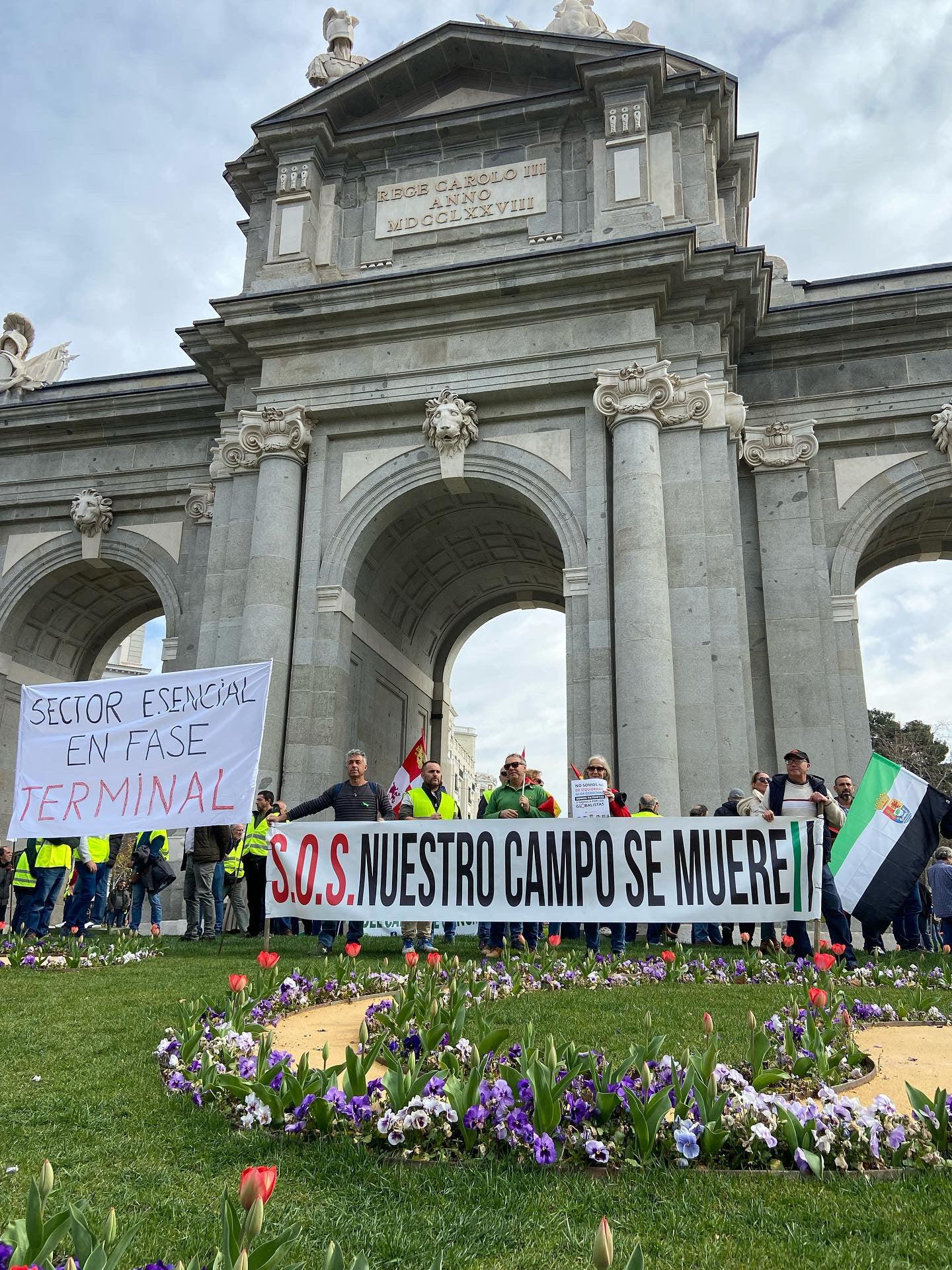The rural world on a war footing, the countryside arrives in Madrid

It is being a turbulent Wednesday throughout Spain, but the epicenter of the conflict is found in Madrid. There are hundreds of tractors that have gathered in five columns with the aim of collapsing the capital as the culmination of three weeks of demonstrations that have no intention of stopping for the moment.
The concentration seeks to make itself heard in the Ministry of Agriculture, Fisheries and Food and in the European Union, since the field suffers a situation of abandonment by administrations at the national and European level. The concentration has exceeded the 500 tractors allowed and therefore there have been moments of tension in areas such as Puerta de Alcalá or Torrejón de la Calzada, where they have surpassed the police cordon. There has been a charge by the national police to try to contain ranchers and farmers who wanted to join the other protesters.
This concentration is joined by others in different parts of the country, with importance in Gran Canaria. It is the first time that we see the tractors on the street on the islands, they have moved to the presidential headquarters in Las Palmas, where the president has received them. Other movements are added to the archipelago and Madrid in cities such as Córdoba, Málaga and Murcia. Agricultural mobilizations are also planned for the weekend in Aragon or Castilla y León, farmers affirm that they are not going to stop until they find solutions to this abandonment to which they are being subjected.
What is happening in the field?
These are some of the reasons why the countryside has taken to the streets to fight for its sector:
1. Bureaucratization of the sector: they ask for a simplification of the CAP and greater agility in the arrival of aid by making bureaucracy simpler. In addition to protesting against the establishment of the field notebook.
2. Drought problem: Andalusian farmers ask for help to repair hydraulic structures, the cause of many restrictions in places like Huelva. Also in Catalonia they ask the Generalitat for help due to the state of drought since they cannot cover the expenses (fuel or planting) due to the restrictions and little aid.
3. The law of the food chain: there is a breach of this law with prices so low that sometimes they do not even cover production costs.
4. Imports from third countries: there is a deregulated market in which products are imported that do not comply with the same regulations that they should comply with if they were Spanish. There is unfair competition that the national product cannot comply with, controls must be increased or the agreement on the use of pesticides and other regulations must be changed.
Author: María Balletbó